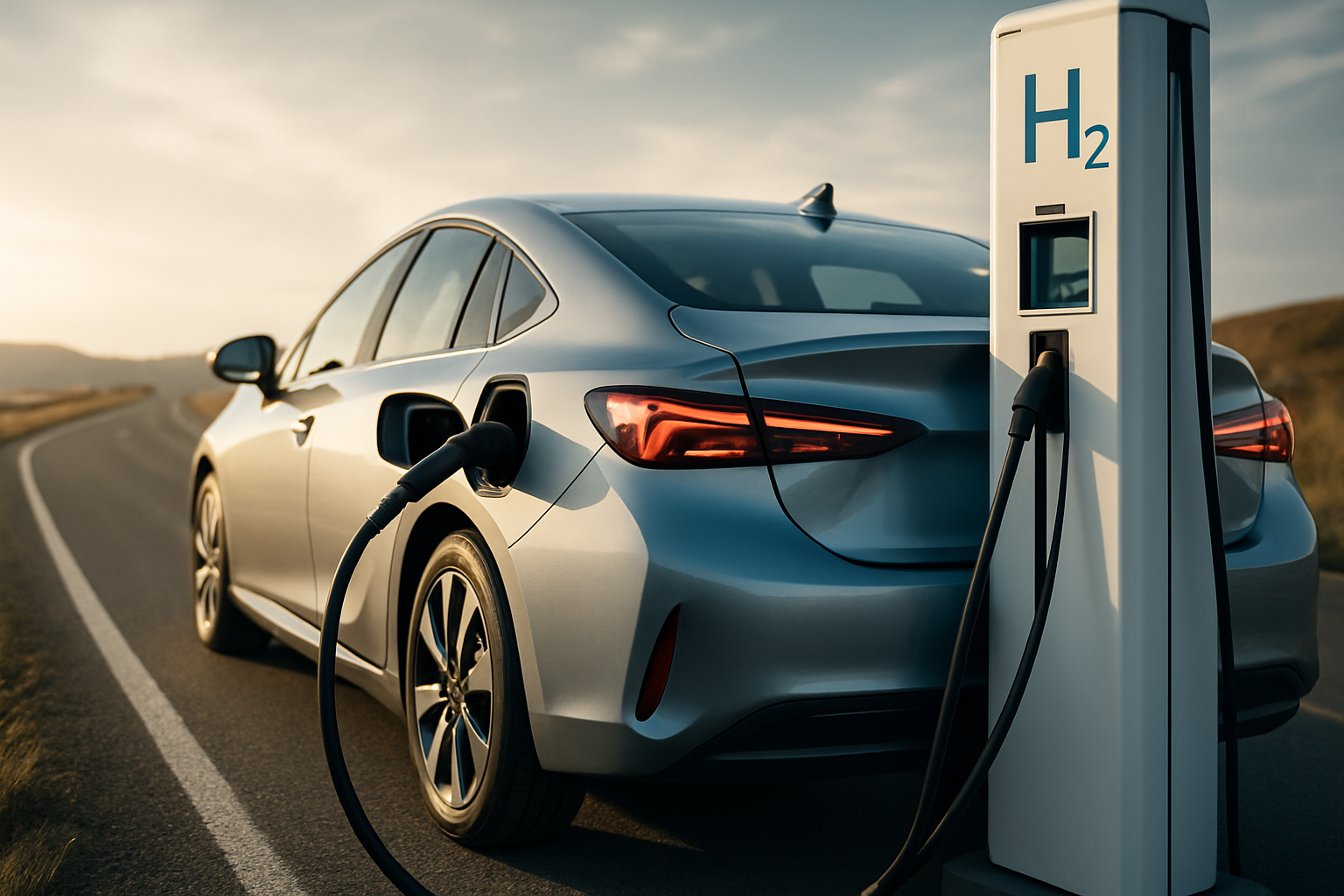Synthetic Fuels: The Overlooked Bridge to Sustainable Motoring
Imagine cruising down the highway in your favorite sports car, the engine roaring with power, yet knowing you're contributing to a greener future. This isn't a far-fetched dream but a potential reality with synthetic fuels. As the automotive world grapples with environmental challenges, synthetic fuels emerge as an often-overlooked solution that could revolutionize sustainable motoring while preserving the essence of internal combustion engines.

During World War II, Germany relied heavily on synthetic fuels derived from coal to power its war machine. In the decades that followed, countries like South Africa invested in synthetic fuel technology to overcome oil embargoes. However, as oil became more readily available and cheaper, interest in synthetic fuels waned.
Today, with the pressing need to reduce carbon emissions, synthetic fuels are experiencing a renaissance. Modern synthetic fuels are produced using renewable energy sources, offering a pathway to carbon-neutral motoring that doesn’t require a complete overhaul of existing infrastructure or vehicle fleets.
The Chemistry Behind Synthetic Fuels
At its core, the production of synthetic fuels involves combining hydrogen with carbon dioxide to create liquid hydrocarbons. The process begins with electrolysis, using renewable electricity to split water into hydrogen and oxygen. The hydrogen is then combined with CO2 captured from industrial processes or directly from the air, in a process known as Direct Air Capture (DAC).
This CO2 and hydrogen mixture undergoes the Fischer-Tropsch process, resulting in a synthetic crude oil that can be refined into various fuel types, including gasoline, diesel, and jet fuel. The beauty of this process lies in its circularity – when burned, these fuels release the same amount of CO2 that was used in their production, creating a potentially carbon-neutral cycle.
Advantages Over Traditional Fossil Fuels
Synthetic fuels offer several compelling advantages over traditional fossil fuels. Firstly, they can be used in existing internal combustion engines without modification, making them a drop-in replacement for conventional fuels. This compatibility means that the current global fleet of vehicles, ships, and aircraft could potentially become carbon-neutral without the need for widespread replacement.
Moreover, synthetic fuels burn cleaner than their fossil-derived counterparts. They contain fewer impurities and produce lower emissions of particulates and nitrogen oxides. This characteristic not only reduces the environmental impact but also contributes to improved air quality in urban areas.
Another significant advantage is the potential for energy independence. Countries with abundant renewable energy resources could produce synthetic fuels domestically, reducing reliance on oil imports and enhancing energy security.
Challenges and Hurdles
Despite their promise, synthetic fuels face several challenges that have hindered widespread adoption. The primary obstacle is cost. Currently, producing synthetic fuels is significantly more expensive than extracting and refining fossil fuels. The energy-intensive process of capturing CO2 and producing hydrogen through electrolysis contributes substantially to this cost disparity.
Efficiency is another concern. The process of converting electricity to hydrogen, then to synthetic fuel, and finally to mechanical energy in an engine is less efficient than using that electricity directly in an electric vehicle. This inefficiency raises questions about the best use of renewable energy resources.
Additionally, scaling up production to meet global fuel demands presents a significant challenge. Building the necessary infrastructure for large-scale synthetic fuel production requires substantial investment and time.
The Role of Synthetic Fuels in a Sustainable Future
While electric vehicles are often seen as the primary solution for sustainable transportation, synthetic fuels could play a crucial complementary role. They offer a pathway to decarbonize sectors that are difficult to electrify, such as long-haul trucking, shipping, and aviation.
In the automotive sector, synthetic fuels could extend the life of internal combustion engines, allowing for a more gradual transition to electric mobility. This approach could be particularly beneficial in regions where rapid electrification is challenging due to infrastructure limitations or economic constraints.
Furthermore, synthetic fuels could help preserve the cultural and emotional aspects of motoring that many enthusiasts cherish. The distinctive sound and feel of a combustion engine, powered by carbon-neutral synthetic fuel, could offer a sustainable way to enjoy classic and performance cars in a zero-emission future.
Industry Initiatives and Future Prospects
Several major automotive and energy companies are investing heavily in synthetic fuel technology. Porsche, in collaboration with Siemens Energy, has launched a pilot plant in Chile to produce synthetic fuel using wind energy. The company aims to use this fuel in motorsports and potentially in its road cars.
Other manufacturers, including Audi and BMW, are also exploring synthetic fuels as part of their sustainability strategies. Meanwhile, energy giants like Shell and BP are investing in synthetic fuel production technologies, recognizing their potential in hard-to-electrify sectors.
As research and development continue, the efficiency and cost-effectiveness of synthetic fuel production are expected to improve. Advances in CO2 capture technology and renewable energy generation could significantly reduce production costs, making synthetic fuels more competitive with traditional fossil fuels.
A Promising Path Forward
Synthetic fuels represent a promising path towards sustainable motoring that doesn’t require abandoning the internal combustion engine. While they are not a silver bullet solution to the climate crisis, they offer a valuable tool in the transition to a low-carbon future.
As the automotive industry continues to evolve, synthetic fuels could provide a bridge between the past and the future, allowing us to preserve the heritage and excitement of traditional motoring while embracing environmental responsibility. The road ahead for synthetic fuels is challenging, but the potential rewards – in terms of sustainability, energy security, and preservation of automotive culture – make it a journey worth pursuing.





